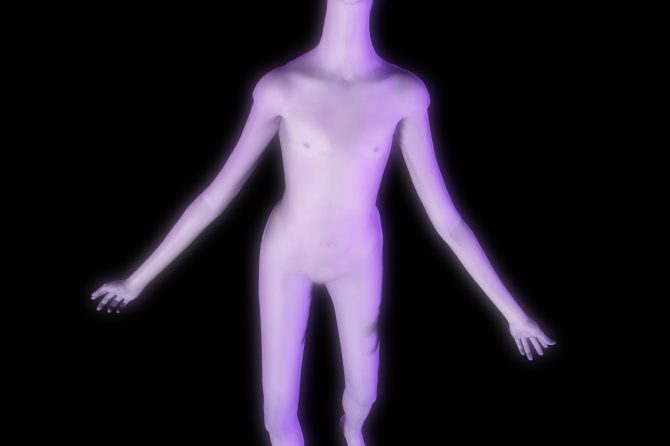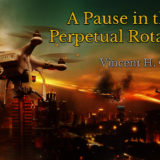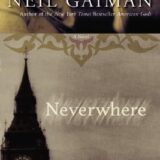 Imaginings Volume: 6 – Feast and Famine is a collection of ten short stories by the British writer Adrian Tchaikovsky, best known for the nine-volume (and counting) fantasy series, Shadows of the Apt, published by Tor. Half the stories in Imaginings Volume: 6 are new, the other five being previously published in the anthologies Solaris Rising 2, Now I Lay Me Down to Reap, Dead But Drowning 2 and the magazines Xenos and Deathray (from which comes Shadows of the Apt, the story thatcloses the collection). This very handsome collection is published both as a signed, dust-jacketed hardback (limited to 125 copies) and an ebook.
Imaginings Volume: 6 – Feast and Famine is a collection of ten short stories by the British writer Adrian Tchaikovsky, best known for the nine-volume (and counting) fantasy series, Shadows of the Apt, published by Tor. Half the stories in Imaginings Volume: 6 are new, the other five being previously published in the anthologies Solaris Rising 2, Now I Lay Me Down to Reap, Dead But Drowning 2 and the magazines Xenos and Deathray (from which comes Shadows of the Apt, the story thatcloses the collection). This very handsome collection is published both as a signed, dust-jacketed hardback (limited to 125 copies) and an ebook.
There is a useful introduction by series editor and NewCon Press publisher Ian Whates that points out that while Adrian Tchaikovsky is best known for his fantasy novels, his short fiction is much more diverse, ranging from the supernatural horror to hard science fiction. The book ends with a biographical note, in which we discover that the author studied psychology and zoology, works in civil litigation, is a dedicated gamer trained in stage fighting, and is ‘currently a member of the Leeds-based chapter of KDF/European Historical Combat Guild group practicing western historical martial arts.’
The collection opens with the title story, a deep space survival adventure in the Arthur C. Clarke tradition. A ship is exploring a solar system which may contain alien life, but contact has been lost with a vessel which landed on an asteroid orbiting a many-mooned gas giant. Another ship is sent to investigate and encounters a deadly mystery centred around slow-growing ‘Anchorites,’ forms that balance on the cusp between geology and biology. The protagonists face a Clarke-ian problem: how to get off the asteroid alive. Tchaikovsky develops a compelling suspense tale rooted in real science, and, with a ship called ‘mother’ and a computer system with priorities of its own, a couple of nods to Alien.
 Equally suspenseful, ‘The Dissipation Club’, is at the opposite end of the scale, a tale of supernatural horror, and at 27 pages it is the longest piece in the collection. A ghost-busting investigator and his wrong-side-of-the-law Watson investigate the case of a rich young man who has vanished without trace. Walther isn’t interested in the case until he realizes he has a very personal connection. This is another real nail-biter that demonstrates the author’s flair for building suspense and a sense of escalating dread.
Equally suspenseful, ‘The Dissipation Club’, is at the opposite end of the scale, a tale of supernatural horror, and at 27 pages it is the longest piece in the collection. A ghost-busting investigator and his wrong-side-of-the-law Watson investigate the case of a rich young man who has vanished without trace. Walther isn’t interested in the case until he realizes he has a very personal connection. This is another real nail-biter that demonstrates the author’s flair for building suspense and a sense of escalating dread.
In ‘The Artificial Man’ a healer called the Toad faces an ethical dilemma when asked to verify the identity of a man who may be a former tyrant. Is the broken man sharing his remote home with a sophisticated mechanical servant really the same sadist the Toad encountered years before? And if so, what should he do about it? A fine story with a touch of steampunk fantasy and a couple of nods to the another classic Ridley Scott science fiction film.
‘Care’ offers a very domestic, imaginative take on a classic genre trope. ‘The God-Shark’ similarly packs a mouthful of teeth in addressing power relationships, but in the form of a sardonic parable about the nature of leadership and the long game some leaders wittingly, or perhaps unwittingly, play with their subjects.
Leaders and subjects are also central to ‘The Roar of the Crowd’, a much longer and particularly powerful piece in the great tradition of fantasy circus stories…except this time the circus is a band of pseudo-Shakespearean traveling players in a dangerous company town. This is a beautiful fantasy tale with a sense of timeless mythological depth.
‘Rapture’ also expresses disquiet with others leading our way. The story is darkly amusing in a very British, almost Python-esque way, unfolding as more and more of the world’s population begin proselytizing their personal, random, and inevitably banal ‘truth.’ ‘Rapture’ sets up the very idea of faith as a straw man, but is burdened with the unconscious irony of being convinced of its own ‘truth,’ that ‘the only true message we can ever receive from the ineffable’ is nothing.
‘Good Taste’ is a comic tragedy about a most unusual form of loss. The victims of a non-existent crime try to find out what happened to them, and why, in a striking tale which goes from mundane to James Bond-esque fantasy and a sly wink to Mary Shelley.
There is a lot of humor in Feast and Famine, and ‘2144 and All That’ shows the comic side of Adrian Tchiakovsky to its best advantage. An elaborately inventive history of the invention of time travel and its manifold consequences for history, told through the narration of a competitor in a ‘future’ sporting event, an athletic race through time. An imaginative riot, ‘2144 and All That’ entertains at all costs while simultaneously lampooning humanity’s desire to be entertained at all costs.
The final story, the lengthy ‘The Sun in the Morning,’ is a fantasy about a prince charged with raising an army to help drive out an invader. His problem is that he is currently a prisoner of war and slave of the enemy. This is an action-adventure tale that could take place in a multitude of settings. The hero might be a French Resistance leader, and the villains, an elite hated even by their own side, SS troops plundering French art treasures. Perhaps because the fantastical could so easily be removed, ‘The Sun in the Morning’ proved my least favorite in the collection. Or it might be that it reads more like a novel extract than a story. In an afterword, the author notes that he has published a sequel which is available online and intends the main characters to continue through a series of further, as-yet-unwritten adventures. Or it may simply be that the story takes place in the same universe as the author’s Shadows of the Apt high fantasy series, and I’m just not a fan of the form.
The great thing about Feast and Famine is that it is a genuinely wide-ranging collection. The chances are you will like enough of the material for a purchase to be worth your while. If you come to Adrian Tchaikovsky through reading his high fantasy novels, you’ll find a new Apt story here, and nine other tales you might also enjoy. If you’ve never read the Apt novels, well, you’ll find a diverse selection of excellent stories and a taste of the Apt series that will give you an idea of their flavor. Highly recommended, whatever your approach.
*
Feast and Famine is Volume: 6 in the NewCon Press Imaginings series of single-author story collections. You can buy it direct from NewCon Press at https://newconpress.co.uk/ or via all the usual places.
Visit Adrian Tchaikovsky’s website for free short stories and other bonus material.
Read my reviews of Imaginings Volume: 4 – Objects in Dreams by Lisa Tuttle, and Imaginings Volume:5 – Microcosmos by Nina Allen. I have also reviewed the NewCon Press Collections’ The Peacock Cloak by Chris Beckett and Ian Whates’ own collection, Growing Pains.










1 Comment